Teaching the use of laboratory
Precision Instruments Laboratory
pollutants, and are listed as follow:
- Gas chromatography (GC)
- Gas chromatography-mass spectrometer (GC-MS)
- Differential scanning calorimeter (DSC)
- UV/Vis Spectrophotometer (UV)
- Microcomputer-controlled calorimeter
- Elemental analyzer (EA)
- Atomic Absorption Spectrophotometer (AA)
- Fourier Transform Infrared Spectrometer (FTIR)
- Total carbon analyzer (TC)
- Thermogravimetric analyzer (TGA)
- Inductively coupled plasma optical emission spectrometer (ICP)
Research Areas
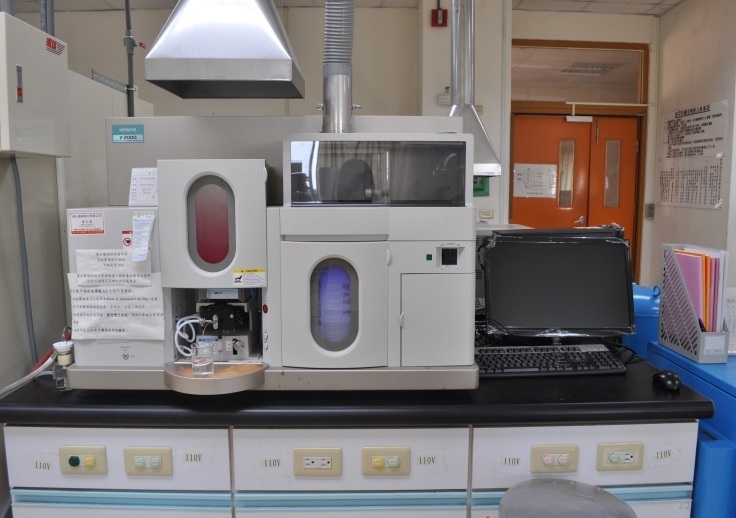 |
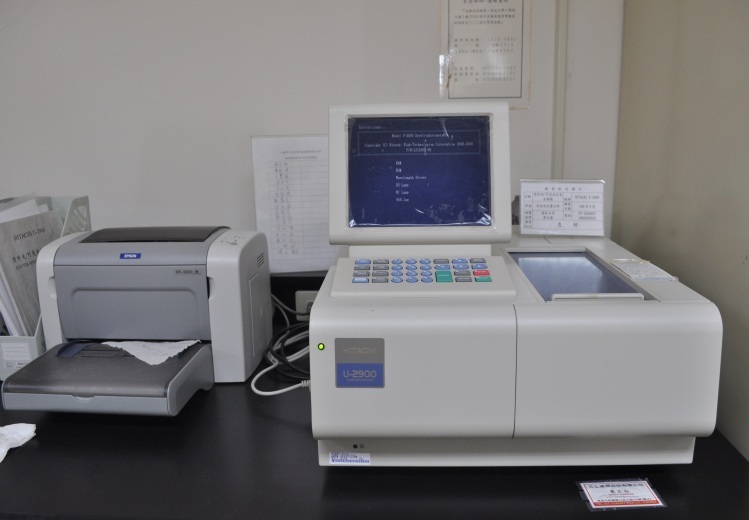 |
| Atomic Absorption Spectrophotometer (HITACHI-Z2000) | Spectrophotometer (HITACH-U2900) etc. |
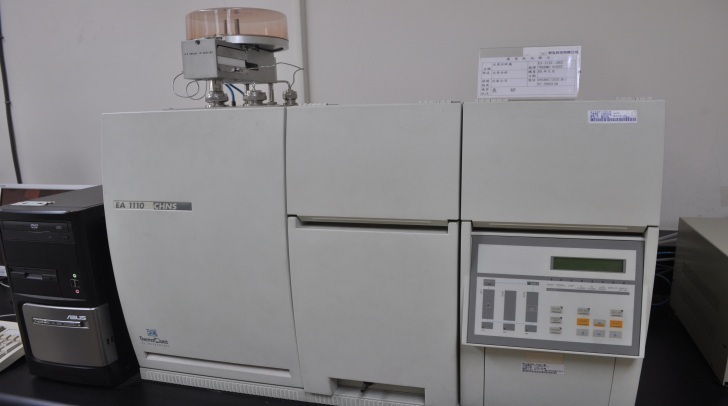 |
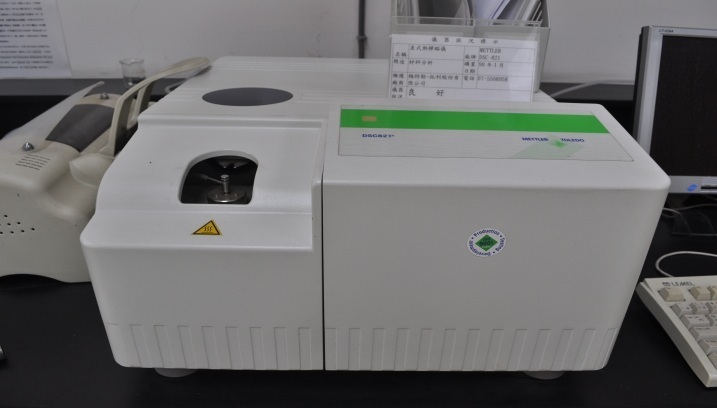 |
| Elemental analyzer (EA) | Differential scanning calorimeter (DSC) |
| Equipment of Precision Instruments Laboratory | |
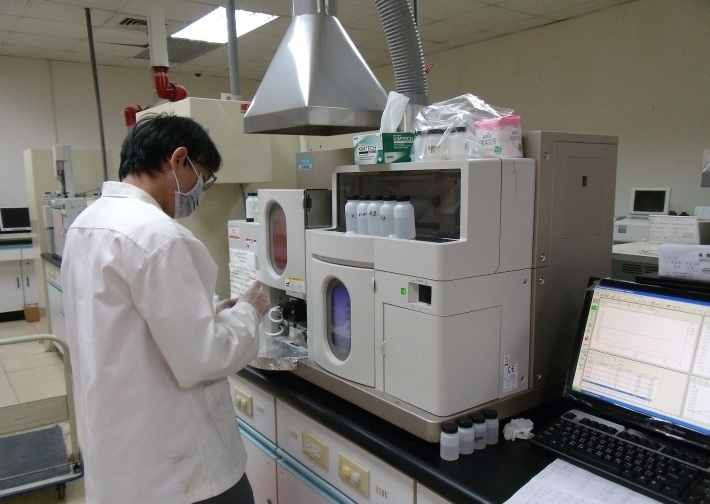 |
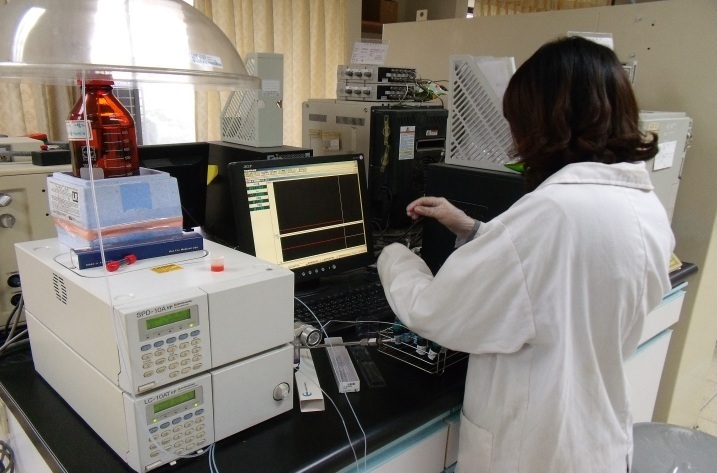 |
| Atomic Absorption Spectrophotometer (HITACHI-Z2000) | Liquid Chromatography analyzer (LC-SHIMADZU) |
General Chemistry Laboratory
General Chemistry Laboratoroy provides a good environment for students to study basic knowledge of chemical studies, like organic chemistry, biochemistry, and the applications of other chemical theories. The combination of courses and experiments ensures
students to: 1) adhere to safety guidelines and other common-sense precautions, 2) prove theories through experiments, thus fostering their knowledge about basic sciences, 3) develop scientific attitudes through the participation of experiments
and be familiar with scientific methods, 4) know how to use experimental tools and operate the instruments, and 5) learn chemical techniques and analytical methods where students lay a foundation by experiments related to organic chemistry, biochemistry
and molecular biology.
Experimental courses involve: 1) chemometrics, 2) molecular weight determination by the Victor Meyer method, 3) gas laws, 4) solid solubility and temperature, 5) determination of moisture in solids, 6) determining chemical formulas, 7) chemical reaction
rate, 8) acid-base titration, 9) chemical equilibrium, 10) testing for ions, 11) determining heat of reaction, 12) redox reactions, 13) adsorption of solids, and 14) chromatography.
Unit Operation Laboratory
In the Unit Operation Laboratory, the units include: 1) jar test, 2) pressure filtration, 3) flotation test, 4) neutralization precipitation, 5) activated sludge, 6) air stripping,7) ion exchange, 8) noise measurement, 9) activated carbon adsorption, 10) waste composition analysis, 11) cyclone dust collector, 12) baghouse dust collector, and 13) sedimentation test.
In the Unit Operation Laboratory, the units include: 1) jar test, 2) pressure filtration, 3) flotation test, 4) neutralization precipitation, 5) activated sludge, 6) air stripping,7) ion exchange, 8) noise measurement, 9) activated carbon adsorption, 10) waste composition analysis, 11) cyclone dust collector, 12) baghouse dust collector, and 13) sedimentation test.
| Equipment of Unit Operation Laboratory | |
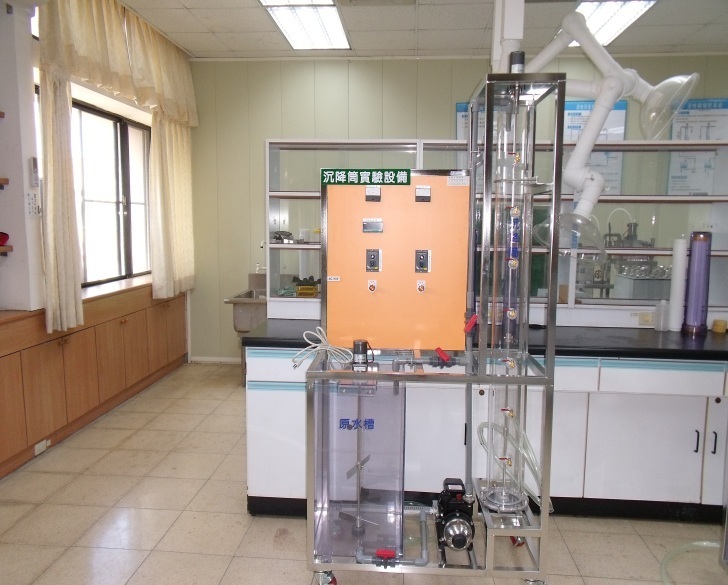 |
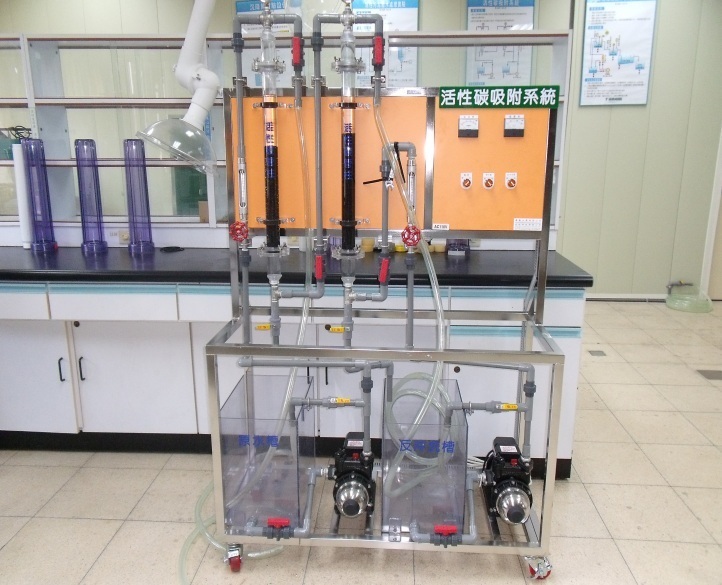 |
| Sedimentation model | Activated carbon adsorption system |
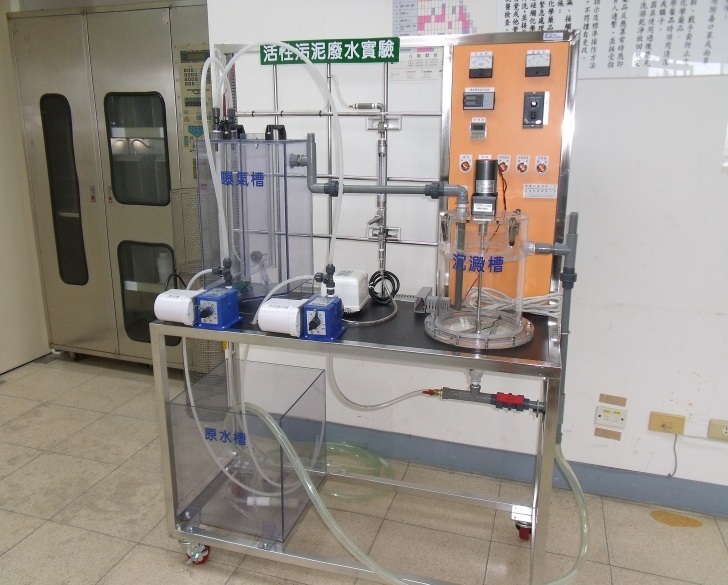 |
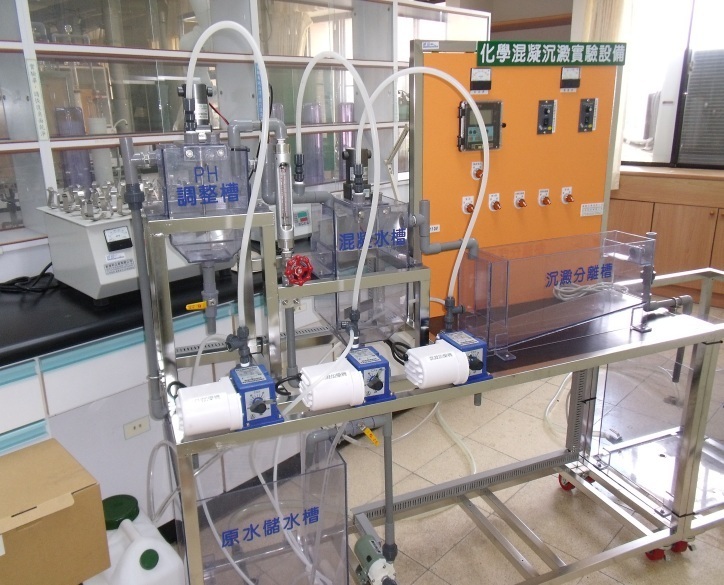 |
| Activated sludge model | Coagulation sedimentation system |
Click Num:
